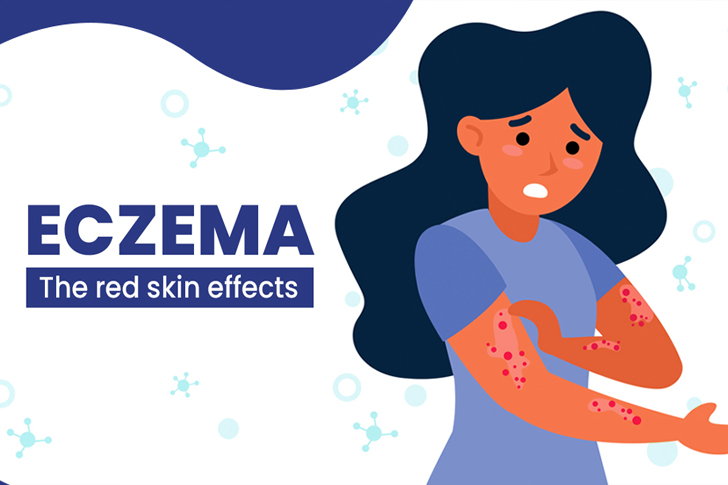Understanding Eczema: An Overview of the Condition
Eczema, also known as atopic dermatitis, is a common skin condition that affects millions worldwide. This chronic, inflammatory disease can cause significant discomfort and distress, impacting the quality of life of both children and adults. In this article, we delve deeper into understanding eczema, exploring its symptoms, causes, and treatment options, supported by relevant facts and statistics to provide you with authoritative insights into this condition.

What is Eczema?
Eczema is characterized by red, itchy, and inflamed patches on the skin. This condition often appears in childhood, typically before the age of five, and can continue into adulthood in some cases. According to the National Eczema Association, more than 31 million Americans suffer from some form of eczema. Globally, about 20% of children and up to 3% of adults are affected by this ailment, indicating its widespread prevalence.
Types of Eczema
There are several types of eczema, each with distinct characteristics and triggers. The most common type is atopic dermatitis, which is part of what’s known as the atopic triad (which also includes asthma and hay fever). Other types include contact dermatitis, which occurs when the skin reacts to substances it comes into contact with; dyshidrotic eczema, which affects the palms of the hands, soles of the feet, and sides of the fingers; and seborrheic dermatitis, which often appears on the scalp and face.
Causes and Triggers of Eczema
The exact cause of eczema remains unclear, but it is believed to be driven by a combination of genetic and environmental factors. People with eczema often have a compromised skin barrier, which makes their skin more susceptible to irritants and allergens. Common triggers include soaps, detergents, dust mites, pets, seasonal pollen, damp weather, and certain foods. Stress is also a well-known exacerbator of eczema symptoms, highlighting the link between psychological factors and skin health.
Symptoms of Eczema
The symptoms of eczema can vary widely from person to person but typically include persistent itching, dryness, and red or discolored patches of skin. In severe cases, continuous scratching can lead to bleeding, oozing, or crusting over the affected areas. Itchiness is particularly troublesome during the night, which can lead to significant sleep disruption. Flare-ups can occur intermittently and may be spaced weeks or months apart.
Diagnosing Eczema
Diagnosis of eczema is primarily clinical, based on the patient’s history and physical examination of the skin. Dermatologists often look for hallmark signs such as the location of the rash and the presence of typical symptoms. In some cases, allergy testing may be recommended to identify potential triggers, especially in persistent or severe cases of eczema.
Treatment and Management of Eczema
While there is no cure for eczema, the condition can be managed with an effective treatment plan that targets both prevention of flare-ups and relief of symptoms. Moisturizing regularly with creams and ointments is essential to keep the skin hydrated and to fortify the skin barrier. Topical corticosteroids are commonly prescribed to reduce inflammation and itching during acute flare-ups.
In recent years, newer treatments like topical calcineurin inhibitors and biologic drugs have been approved for use in eczema. These medications help modulate the immune response specifically associated with atopic dermatitis. Light therapy, involving exposure to ultraviolet light under medical supervision, is another option for severe eczema cases that do not respond to traditional therapies.
Lifestyle adjustments also play a vital role in managing eczema. These include avoiding known triggers, using mild soap-free cleansers, wearing soft breathable clothing, and maintaining a cool, humid environment at home. Stress management techniques like meditation and yoga can also help control flare-ups related to emotional stress.
The Impact of Eczema on Quality of Life
Eczema can significantly affect a person’s quality of life, leading to sleep disturbances, discomfort, and psychological stress. In children, chronic itchiness and discomfort can result in behavioral issues and difficulties in school performance. Adults may experience social embarrassment and limitations on job choices, particularly if visible parts of the skin are affected.
Conclusion
Understanding eczema is crucial for managing this complex condition effectively. With a combination of medical treatments and lifestyle adjustments, individuals can achieve substantial relief from symptoms and improve their quality of life. Ongoing research continues to shed light on this condition, offering hope for more effective treatments in the future and a better understanding of how to control this persistent skin disorder effectively.







Recent Comments